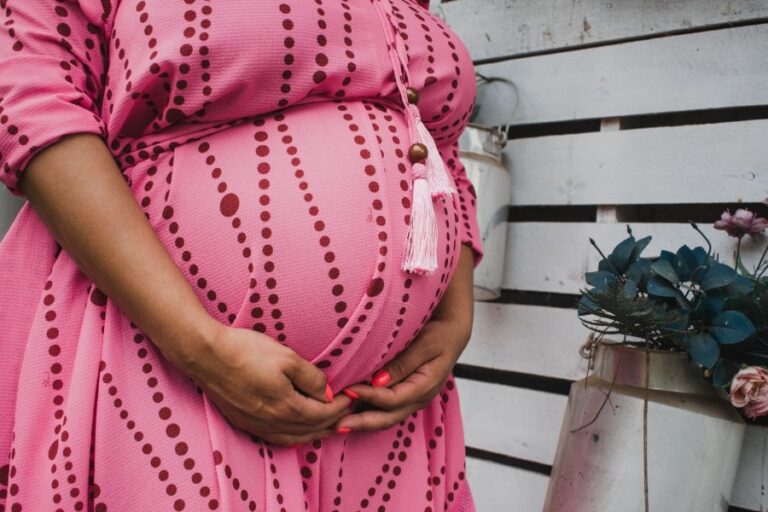Support isn’t just a nice-to-have, it’s a must-have when it comes to navigating infertility. A 2018 study conducted by Human Reproduction found that 41% of the 416 women surveyed who grappled with infertility dealt with depression as well. That makes finding infertility support all the more necessary.
Anyone who’s endured infertility knows that it can be quite the emotional rollercoaster. There are the ups (Yay, we’re being proactive! These steps could lead to pregnancy!) and there are quite a bit of downs (Another failed cycle? When is it finally going to be my turn?).
It’s especially difficult as Black women. Infertility can often be an isolating journey, further complicated by the fact that Black women aren’t as represented in conversations about infertility even though research suggests that we’re twice as likely to experience infertility as white women.
Below are a few suggestions for people you’ll want to have on your infertility support squad:

A doctor you trust…
My husband and I actually switched fertility clinics at the start of our process because I wasn’t comfortable at the first one we went to.
We had an older male doctor who was very matter-of-fact and a bit lacking in the bedside manner department, in my opinion. Plus the clinic was very much “get you in, get you out,” and it wasn’t that diverse.
We ended up finding a clinic and doctor we love. So don’t be afraid to switch if your current clinic and/or doctor doesn’t suit your needs! Infertility support includes your health care providers.
A therapist you love…
I’ve been in individual therapy since 2016 and I can’t imagine doing IVF without someone to help me process my thoughts and emotions in a healthy way.
Coincidentally, my husband and I started seeing a couples’ therapist around the time we started IVF. Doing so provided us with a built-in outlet (not to mention a neutral third party) to help us sort out some of our anxiety around the process and improve how we supported each other through it.
Note: Get a free week of BetterHelp therapy using this affiliate link.
Your girlfriends…
Cue the theme song by Angie Stone: My… giiiiiiiiiiiiirlfriends!
Throughout this process, my friends have been a rock for me. Hand-delivering flowers, sending supportive texts, wine, ice cream, cookies, and cupcakes via UberEats… my friends have shown up and shown out in the best way possible. (What can I say? Food is my love language!)
As someone who isn’t good about asking for help, I appreciate that my friends were able to anticipate my needs. But keep in mind that people aren’t mind readers—nor should you expect them to be. It’s best to be as upfront and specific about what you need as possible.

Infertility support groups…
Support groups can be especially helpful if there’s no one in your immediate circle who’s had a similar journey to parenthood.
I’ve found comfort in infertility support groups that cater toward Black women, such as:
- Fertility for Colored Girls,
- Broken Brown Egg’s Facebook group Shellshocked,
- Daughters of Hannah, and
- Black Women and Infertility.

A healthy way to move your body…
Throughout infertility—and during IVF in particular—you can feel like you’re not in control of your body. (With daily injections and various procedures, it’s hard not to.)
Daily movement is my way of reconnecting with my body and reclaiming that time and space for myself. Sometimes this looks like yoga, a low-impact or recovery ride on my Peloton bike, or a casual walk by the lake.

And a meditation or gratitude practice.
Every day, I open Insight Timer and do a 5- to 15-minute meditation. There’s something serene about carving out this daily intentional time to breathe and just be. (Some of my favorite instructors are Liza Colpa, Lalah Delia, Dora Kamau and Lauren Ash of Black Girl in Om.)
Afterward, I open my gratitude journal and jot down 10-15 things I’m grateful for. It’s a simple practice, but it helps me to remember amid my misfortune with infertility there are so many blessings in my life.
Every body, every cycle, every journey is different. And your infertility support may change at different points throughout your journey. That’s okay. There are no right or wrong answers here.
Be true to yourself, acknowledge your needs and don’t be afraid to adapt when necessary. Infertility isn’t linear and your support doesn’t have to be either.
















